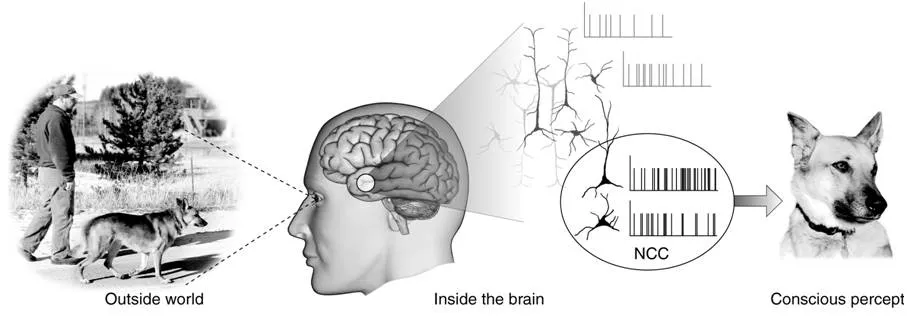Cyborgization is a long term solution to the problem of human biases. Racism in the form of an empathy gap is shown in this example where medical students believe black people feel less pain than whites. This shows a direct negative impact of racial bias which from a utilitarian perspective results in unnecessary suffering for black people.
U.Va. report: Med students believe black people feel less pain than whites
“A substantial number of white laypeople and medical students and
residents hold false beliefs about biological differences between
blacks and whites, and demonstrates that these beliefs predict racial
bias in pain perception and treatment recommendation accuracy,” the
research notes.“Many previous studies have shown that black Americans are under
treated … because physicians might assume black patients might abuse
the medications or because they might not recognize the pain of their
black patients in the first place,” said Hoffman.“Our study provides some insight to what might contribute to
(disparities between races) – false beliefs about biological
differences between blacks and whites,” Hoffman said. “The good news
is that individuals who do not endorse these false beliefs do not show
any evidence of racial bias in treatment recommendations.

The case for cyborgization and why we cannot exclusively rely on our own brains
The human brain is limited in the amount of people it can feel empathy for. If we remove race from the question of bias there is still the empathy limit represented by Dunbar's number. Cyborigzation is a way to transcend this limit and is a practical application of transhumanism.
Cyborgization in this context would work by amplifying the capacity for empathy using AI. Cyborgization does not require a "chip in the skull" or invasive methods. Cyborgization can work through using intelligent agents which the human communicates with through an embodied agent interface.

Thinking outside the brain
The idea for an external memory originated with the work of Vannevar Bush for a concept he called the Memex. Memex means memory index and it was to be an externalized memory bank of a sort utilizing micro-films and pre-WWW pre-Internet technologies. In essence it could ultimately evolve into a personal knowledge bank of a sort which could be searchable for the individual.
Cyborgization goes further than this but is based around the same concepts. One of the requirements is to give every human being on earth an ability to have a personal knowledge bank to store their memories. Currently what we call the cloud and Google serve these functions are are becoming what some may conclude is an exocortex. Some people also conclude that we are already in the process of cyborigzation because of Google, the Internet, the Cloud, and technologies such as Siri.
Cyborgization is part of a wider movement of transhumanism and it embodies a specific concept called intelligence amplification. Intelligence amplification is an expression of transhumanism but the main premise of the concept is to transcend our human limitations using technology. In philosophical terms the smart phone becomes a part of our extended mind and our intelligent agents become extensions of our will. It means we can gain the benefits of the AI in terms of ability to process big data and big ethics while keeping the best aspects of being human.

Extended cognition and empathy amplification
While it might be technically possible to achieve enhanced cognition, and produce an exocortex for enhanced rationality to transcend the bounded rationality issue, it is also possible to amplify empathy. The human brain cannot process beyond a certain threshold but moral amplification intelligent agents would be able to see through the bias of the human brain. This moral amplification device would provide a moral aspect of decision support so that a person who cannot feel the required empathy can be alerted directly by way of a feedback loop.
For example the embodied agent interface could simply remind the human that their empathy in a certain area may be subject to bias based on statistics. A medical professional for example could be reminded that the patient may be in pain and suggest or recommend a treatment. It is already the case that doctors rely on the AI technology behind Watson called Wellpoint which can make diagnoses. In addition to the ability to make diagnoses the AI could also have debiasing and empathy augmentation built in.
Recommender and reminder services of an intelligent agent provide the important feedback loop necessary to allow the human brain to self correct based on flags on their behavior. This is similar to the effect of the quantified self. Philosophically speaking the intelligent agents become a part of the digital self of the person because these intelligent agents will know the person better and more deeply than they know themselves. This will allow a person to look deeply into their own psychology, psycho-analyze themselves, study their own biases, and correct what they can correct for example if their intelligent agents quantify precisely how racist they are or how sexist they are on a daily basis according to their decisions.
The brilliance of combining the Semantic Web, Smart Contracts and Blockchain Technology

The Semantic Web also which is now a component of the Giant Global Graph is a new way of dealing with data. In particular because we know there are human limitations involving the ability to process data, the ability to debias, to be rational, we can use technologies such as reasoners, decision support systems, knowledge bases, to transcend our natural limitations. Of course these examples are only the tip of the iceberg.
The Hermes Semantic Web Based News Decision Support System (Borsje, Jethro, Levering, Frasincar, 2008) for example is something which could be built on top of a decentralized platform similar to Steemit. The difference being that because it works with ontologies and has the ability to process the meaning behind concepts it can go far beyond just curation. OWL (Web Ontology Language), RDF (Resource Description Framework) all can allow for structuring data in a way that machines can more easily utilize them. Reasoners can utilize these this machine readable data to apply inductive or deductive reasoning according to rules to infer a logical consequence. These capabilities give the Hermes Semantic Web Based News Decision Support System it's power.

Smart Contracts as Intelligent Agents
While some people like to use legal metaphors to think of and discuss smart contracts I will like to think of smart contracts as intelligent agents. In addition to this I'm deliberately not going to point out any particular smart contract compatible technology but this discussion instead applies to future technologies which will take full advantage of semantic web and linked data capabilities along with secure computation necessary for cloud AI. In the case where intelligent agents can function what might we actually be able to do with them under this paradigm?
Intelligent agents would be able to be your personalized digital businessman capable of shopping for you in ways never thought imaginable before. The intelligent agent will be able to request your requirements or in other words: "what are you looking for?", and immediately estimate what it will cost to fulfill your requirements. An intelligent agent will be able to trade with other intelligent agents owned by others. So to give an example you could have Stan who projects his intentions outward onto the world through his Stanbot intelligent agents which would then be able to interact with millions of intelligent agents around the world 24/7 365 to fulfill the agenda of Stan.
In this world of intelligent agents we may find that everyone has intelligent agents of their own. We may also find that farming intelligent agents becomes a new path to the same kind of self sufficiency that agriculture or server farming had with the difference being that by farming intelligent agents you are farming automation. In a scenario where Stan's intelligent agents can produce more value than is needed to maintain their costs then Stan the person can be maintained by his Stanbot intelligent agents which will be able to profit without any direct input from Stan.
Automated capitalism and ethics amplified
Automated capitalism is where capitalism is headed if we stay on the current path. Over time the labor force will become more machine, more AI, and less human. Humans will have to choose between basic income and self sufficiency. If humans choose basic income then you have a short term solution while if humans choose self sufficiency you have the long term solution. The short term solution is in some ways the least painful because it would not require people change how they live quite as much except the income sources would change. The long term solution will require a complete overhaul on how people live from the way homes are designed, to the way energy is generated, to the way money is created, and many of these ideas are considered radical.
Today we rely on our very limited brains to try to make the best decisions we can with the information we have. We have some who are information rich because they have more access to quality information than others from which to make their decisions. We have some who are information poor because they either don't have as much access as others or they rely on disinformation. The President of a country or a leader of a community must have access to the highest quality information to make his decisions. This high quality information is usually called "intelligence" and in the cases of governance much of the time this intelligence is sensitive or classified. This intelligence may be sensitive or classified because there isn't a lot of restraint to what is collected.
At the same time society is changing as well. While people are being monitored more than ever we are also collecting more information than we can process. Much of this information if we could process it could save lives, could enhance our understanding about ourselves, could improve how we treat others, and improve our ethics vastly. Disinformation serves to prevent us from being able to make the kinds of decisions which lead to the consequences we desire whether it be the greatest good for the great number or just in the best interest of our present and future self. Cyborgization can be used to accelerate and amplify the best aspects of humanity including empathy. It can also improve the quality of governance at all levels just as the Internet is able to do and it does not require invasive technology because anything from a smartphone to a wearable computing device can achieve the same ends.
References
http://college.usatoday.com/2016/04/05/uva-report-med-students-black-people-feel-less-pain/
https://en.wikipedia.org/wiki/Embodied_agent
https://en.wikipedia.org/wiki/Quantified_Self
https://en.wikipedia.org/wiki/Memex
https://transpolitica.org/tag/cyborgization/
Borsje, Jethro, Leonard Levering, and Flavius Frasincar. "Hermes: a semantic web-based news decision support system." In Proceedings of the 2008 ACM symposium on Applied computing, pp. 2415-2420. ACM, 200
Clavel, C., & Callejas, Z. (2016). Sentiment analysis: from opinion mining to human-agent interaction.
Fischoff, B. (1981). Debiasing (No. PTR-1092-81-3). DECISION RESEARCH EUGENE OR.
Hastie, H., Lim, M. Y., Janarthanam, S., Deshmukh, A., Aylett, R., Foster, M. E., & Hall, L. (2016, May). I Remember You!: Interaction with Memory for an Empathic Virtual Robotic Tutor. In Proceedings of the 2016 International Conference on Autonomous Agents & Multiagent Systems (pp. 931-939). International Foundation for Autonomous Agents and Multiagent Systems.
Lewandowsky, S., Ecker, U. K., Seifert, C. M., Schwarz, N., & Cook, J. (2012). Misinformation and its correction continued influence and successful debiasing. Psychological Science in the Public Interest, 13(3), 106-131.